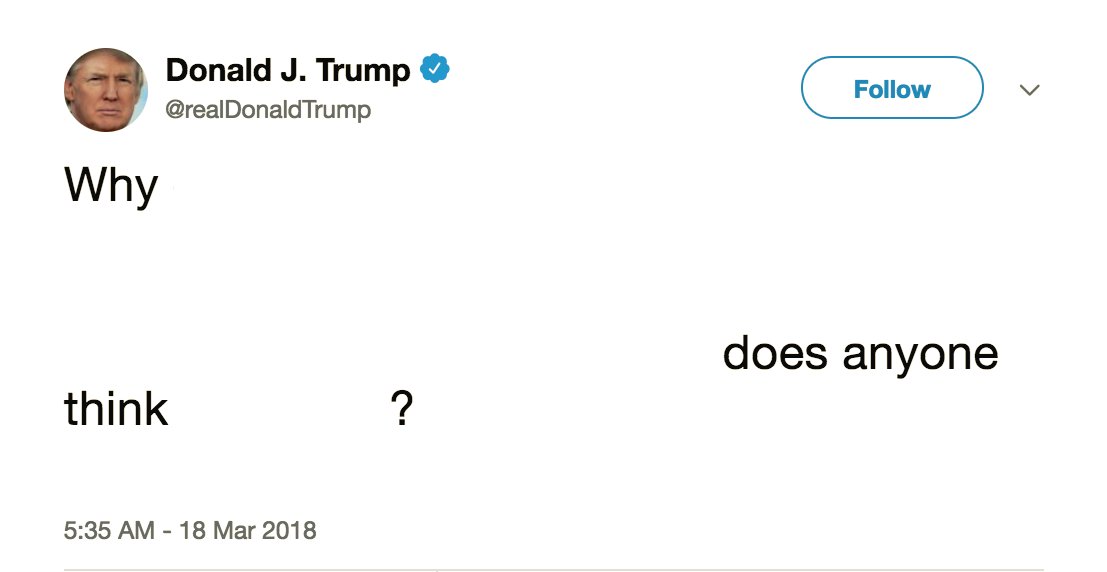
Indeed, in a recent Senate Judiciary Committee hearing on content moderation, CEO Mark Zuckerberg noted Facebook plans to continue the sheltered treatment of Trump even after he leaves public office. But Twitter has already confirmed that the account will be beholden to the same regulations as all other nonexempt users after President-elect Biden’s inauguration and the turnover of and accounts to a new administration.įacebook also allows otherwise objectionable content “if it is newsworthy and in the public interest.” This allowance is not dependent on being an officeholder or candidate and it is entirely possible that Trump will keep the same protection. When questioned during the recent Senate Commerce Committee hearing on Section 230, Twitter CEO Jack Dorsey explicitly stated that his company has not censored Trump, which he defined as completely removing tweets, and has instead applied labels to his posts due to his standing as a political leader. For example, Twitter’s policies state that tweets which violate content rules may remain up if they “serve the public interest,” a moniker which they apply to tweets by political candidates and leaders currently in office (although the company notes it is less likely to make these exceptions in cases of statements advocating or condoning violence or terrorism). Right now, Trump’s social media is protected from deletion by the platforms’ policies that grant him public interest exceptions to content moderation. Public interest exceptions to community standards guidelines Now, with less than two months left in his presidency and both his personal and political social media accounts as active as ever, it is worth considering what will happen when his term ends.

Instead, they flag particular statements as “disputed” and guide readers to alternative sources of information. Though a number of his falsehoods violate the community standard guidelines of Facebook and Twitter, they have not censored his posts nor removed his posting privileges. Some of these inaccurate claims have been repeated hundreds of times both on and offline. According to the Washington Post, Donald Trump has made over 22,000 false or misleading statements since he became president, almost 4,000 of which came from Twitter. To be sure, he’d still try to challenge the Georgia case if he retakes the White House, most likely arguing, among other things, that the presidency immunizes him from state charges.īut whatever the result of any novel challenges he’d raise, the fact remains that a President Trump wouldn’t be able to do the legal equivalent of snapping his fingers and killing the Georgia case like he would with the federal cases.At the heart of these juxtaposed responses is the fundamental fact that Trump receives preferential treatment on social media due to his status as president. Of course, Trump isn’t looking for forgiveness, employment or education - he’s looking for a way out of charges immediately, as anyone would. (“It may serve as a means for a petitioner to advance in employment or education,” the board explains.) The board can also commute (or shorten) sentences to time served. All a state pardon is, the board’s site says, “is an order of official forgiveness” that doesn’t erase crimes from the record. So even if Trump (or another Republican) were elected president, Georgia’s pardon process doesn’t appear to provide the instant relief Trump would seek on the federal level.

The form also says applicants “cannot have any pending charges.”
TRUMP ON POTUS TWITTER FULL
will be considered only if the applicant has completed his/her full sentence obligation, including serving any probated sentence and paying any fine, and has been free of supervision (custodial or non-custodial) and/or criminal involvement for at least five consecutive years thereafter as well as five consecutive years immediately prior to applying. That’s because the pardon application says: Brian Kemp and his predecessors.Įven if the board were inclined to grant Trump a pardon, however, it wouldn’t seem to do him much good any time soon. The current board was appointed by a mix of Republican Gov. Rather, under the state constitution, there’s a board of pardons and paroles, with five members appointed by the governor and confirmed by the state Senate to staggered, seven-year terms. And unlike in other states, such as New York, clemency isn’t up to the governor in Georgia, either - not directly, anyway.


 0 kommentar(er)
0 kommentar(er)
